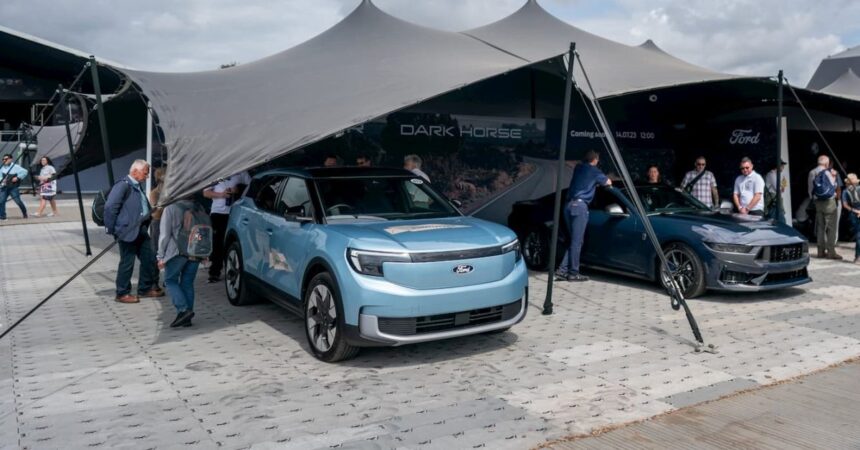Ford is facing challenges in Europe as the company struggles to stay afloat in the region. With plans to reduce its workforce and slow demand for its EVs, many are skeptical about Ford’s future in Europe. A recent survey conducted by Berlin-based Civey for Automobilwoche revealed that nearly half of respondents expect poor results for Ford in the European car market.
Last month, Ford announced plans to cut 4,000 European jobs by 2027 as part of its restructuring efforts in the region. The company cited significant losses in Europe over the past few years, attributing them to lower-than-expected demand for EVs and a weakening economy. The planned job cuts will mainly affect Germany, with minimal reductions in other European markets.
The skepticism surrounding Ford’s future in Europe is partly due to the company’s EV strategy, or lack thereof. Civey’s Lead Customer Success Manager, Christian Riedl, emphasized the need for Ford to take clear steps in positioning itself for the future, especially in terms of electromobility and innovation. Riedl noted that the large number of undecided respondents presents an opportunity for Ford to strengthen its position by providing a convincing vision and demonstrating visible progress.
Despite introducing new EV models like the Electric Explorer and Capri based on Volkswagen’s MEB platform, Ford is already slowing production at its Cologne plant. The company recently launched the all-electric version of its best-selling vehicle in Europe, the Puma Gen-E, in an effort to boost demand.
In the face of stiff competition from Chinese EV makers like BYD, which is rapidly gaining ground in global deliveries, Ford must strategize to stay competitive. A recent Bloomberg study highlighted BYD’s potential to surpass Ford in deliveries by the end of the year, with its Seagull EV becoming the best-selling vehicle in China. As Chinese electric cars flood the market, global auto leaders are under pressure to take drastic measures to survive the transition.
Reports suggest that Honda and Nissan are considering an EV merger to navigate the evolving automotive landscape. This raises questions about Ford’s potential partnerships or expansions with European or global partners like VW. The future of Ford in Europe remains uncertain, but the company’s ability to adapt to changing market dynamics and embrace innovation will be crucial in determining its success.







